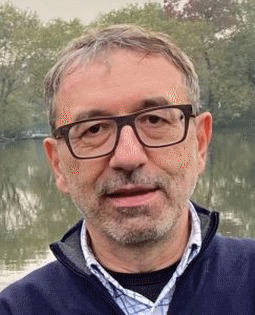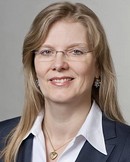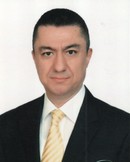Keynote 1:
Stability and Consensus of Multi-Agent Systems via Nonlinear Perron-Frobenius Theory
Prof. Alessandro Giua (IEEE Fellow)
University of Cagliari, Italy
Abstract
The study of how multiple autonomous agents, composing a Multi-Agent System (MAS), coordinate between them to achieve a desired global behavior has spurred much interest within the control community. A compelling global asymptotic behavior is the consensus, i.e., agreement, among all agents. From a control system perspective, the consensus problem consists in the design of local interaction rules between agents such that their state variables converge to the same value.
The case of agents modeled by linear discrete-time dynamical systems has been thoroughly investigated. The evolution of a linear MAS is described by a matrix, which is usually assumed to be nonnegative (all entries are zero or positive) and row-stochastic (all row-sums are equal to one). As a consequence, the theory for consensus in linear MAS has its roots in the theory developed by Perron and Frobenius for nonnegative matrices.
In this plenary, I discuss the case of agents modeled by nonlinear discrete-time dynamical systems, whose evolution is described by a nonlinear map. In such a case, the properties of interest for consensus analysis are monotonicity and plus-homogeneity, which can be seen as the nonlinear counterpart of nonnegativity and row-stochasticity. Based on these notions, several nonlinear extensions of the classical Perron-Frobenius theory have been developed.
I will show that the evolution of an arbitrary nonlinear discrete-time dynamical systems whose map is type-K monotone and plus-homogeneous eventually converges to an equilibrium point of the system, if any exists. Given a MAS it is possible to give necessary and sufficient conditions on the local interaction rule to guarantee that the map of the overall system satisfies the above-mentioned properties. Finally, I will show that under mild conditions the existence of a globally reachable node in the communication graph is sufficient to converge to consensus.
This approach can provide stability results --- and convergence to consensus as a special case --- based on the (distributed) structure of the system rather than on Lyapunov theory.
Biography of Prof. Alessandro Giua

Alessandro Giua is professor of Automatic Control at the Department of Electrical and Electronic Engineering (DIEE) of the University of Cagliari, Italy. He has also held academic and visiting positions in several institutions worldwide, including Xidian University (China) and Aix-Marseille University (France).
He received a Ph.D. degree in computer and systems engineering from Rensselaer Polytechnic Institute, Troy, NY, USA in 1992. His research interests include discrete event systems, hybrid systems, networked control systems, Petri nets and failure diagnosis. On these topics he has published extensively, given several talks and managed international and national research projects.
He is currently the Editor in Chief of the IFAC journal Nonlinear Analysis: Hybrid Systems and a Senior Editor of the IEEE Trans. on Automatic Control. He is serving as Vice President for Conference Activities of the IEEE Control Systems Society (2000-21).
He is a Fellow of the Institute of Electrical and Electronics Engineers and a Fellow of the International Federation of Automatic Control for contributions to discrete event and hybrid systems. He received in 2017 the People's Republic of China Friendship Award.
Keynote 2:
Means and measures in control software design to enable Industry 4.0-compliant machines and plants
Prof. Birgit Vogel-Heuser
Technical University of Munich, Germany
Abstract
The amount of software in machines and plants, including its development effort, is continuously increasing. Consequently, means to design control software compliant to Industry 4.0 and the measures to prove it are of high economic interest. The talk will introduce means to analyze existing legacy control software as a first step to refactoring. Furthermore, beneficial software architectures and selected patterns for the design phase of control software will be presented. Finally. measures for continuously monitoring control code quality will be demonstrated using simple intralogistics up to real industrial application examples.
Biography of Prof. Birgit Vogel-Heuser
 Birgit Vogel-Heuser received her Dipl. Ing. degree in electrical engineering in 1987 and her Dr.-Ing. degree in mechanical engineering in 1990 from the RWTH Aachen, Germany. She acquired industrial experience over ten years, including a position as technical director for the Siempelkamp Group. After various professorship positions in Hagen, Wuppertal, and Kassel, she was appointed to the Chair of Automation and Information Systems at TUM in 2009. Prof. Vogel-Heuser is a Senior Member and distinguished lecturer of IEEE and a member of the National Academy of Science and Engineering (acatech). She is also a member of various advisory boards, including the advisory board of the VDI/VDE-GMA and the board of trustees of the German Museum. Prof. Vogel-Heuser is editor of the handbook Industrie 4.0 and the author of more than 500 scientific publications. The research interests of Prof. Vogel-Heuser are in the area of systems and software engineering as well as in the modeling of distributed and reliable embedded systems. Especially, her research foci are put on the challenges that result from the increasing demand to produce customer-specific products in the plant manufacturing domain. Engineering and education on hybrid process and heterogeneous distributed and intelligent systems using a human-centered approach are also included in her research area.
Birgit Vogel-Heuser received her Dipl. Ing. degree in electrical engineering in 1987 and her Dr.-Ing. degree in mechanical engineering in 1990 from the RWTH Aachen, Germany. She acquired industrial experience over ten years, including a position as technical director for the Siempelkamp Group. After various professorship positions in Hagen, Wuppertal, and Kassel, she was appointed to the Chair of Automation and Information Systems at TUM in 2009. Prof. Vogel-Heuser is a Senior Member and distinguished lecturer of IEEE and a member of the National Academy of Science and Engineering (acatech). She is also a member of various advisory boards, including the advisory board of the VDI/VDE-GMA and the board of trustees of the German Museum. Prof. Vogel-Heuser is editor of the handbook Industrie 4.0 and the author of more than 500 scientific publications. The research interests of Prof. Vogel-Heuser are in the area of systems and software engineering as well as in the modeling of distributed and reliable embedded systems. Especially, her research foci are put on the challenges that result from the increasing demand to produce customer-specific products in the plant manufacturing domain. Engineering and education on hybrid process and heterogeneous distributed and intelligent systems using a human-centered approach are also included in her research area.
Keynote 3:
Aerodynamic Flow Control
Prof. M. Onder Efe
Hacettepe University, Turkey
Abstract
In this talk, issues in aerodynamic flow control will be discussed. It is well known that aerodynamic flow dynamics are governed by Navier Stokes equations and this coupled and nonlinear equation set displays a rich set of physical phenomena when the operating conditions (like Mach number or flow geometry) change. In this talk, model reduction problems will be described and simple boundary controller designs will be considered for Heat equation, Burgers equation, and an experimental aerodynamic flow control setup will be shown. Solutions and neural network based pointwise modeling results will be discussed for the cavity flow setup.
Biography of Prof. Mehmet Onder Efe

Mehmet Onder Efe has received his Ph.D. degree from EEE Dept. of Bogazici University, Istanbul, Turkey. Having spent a year at Carnegie Mellon University and another at The Ohio State University, he worked at several private universities in Turkey in between 2003-2013. Since 2013, he has been with the Department of Computer Engineering at Hacettepe University.
Dr. Efe is/was and associate editor of IEEE Transactions on Industrial Electronics, IEEE Transactions Industrial Infırmatics, IEEE/ASME Transactions on Mechatronics, IEEE Transactions on Artificial Intelligence and he currently serves as the Editor-in-Chief for Transactions of the Institute of Measurement and Control.
His research interests include control systems, neural networks and unmanned vehicles.
